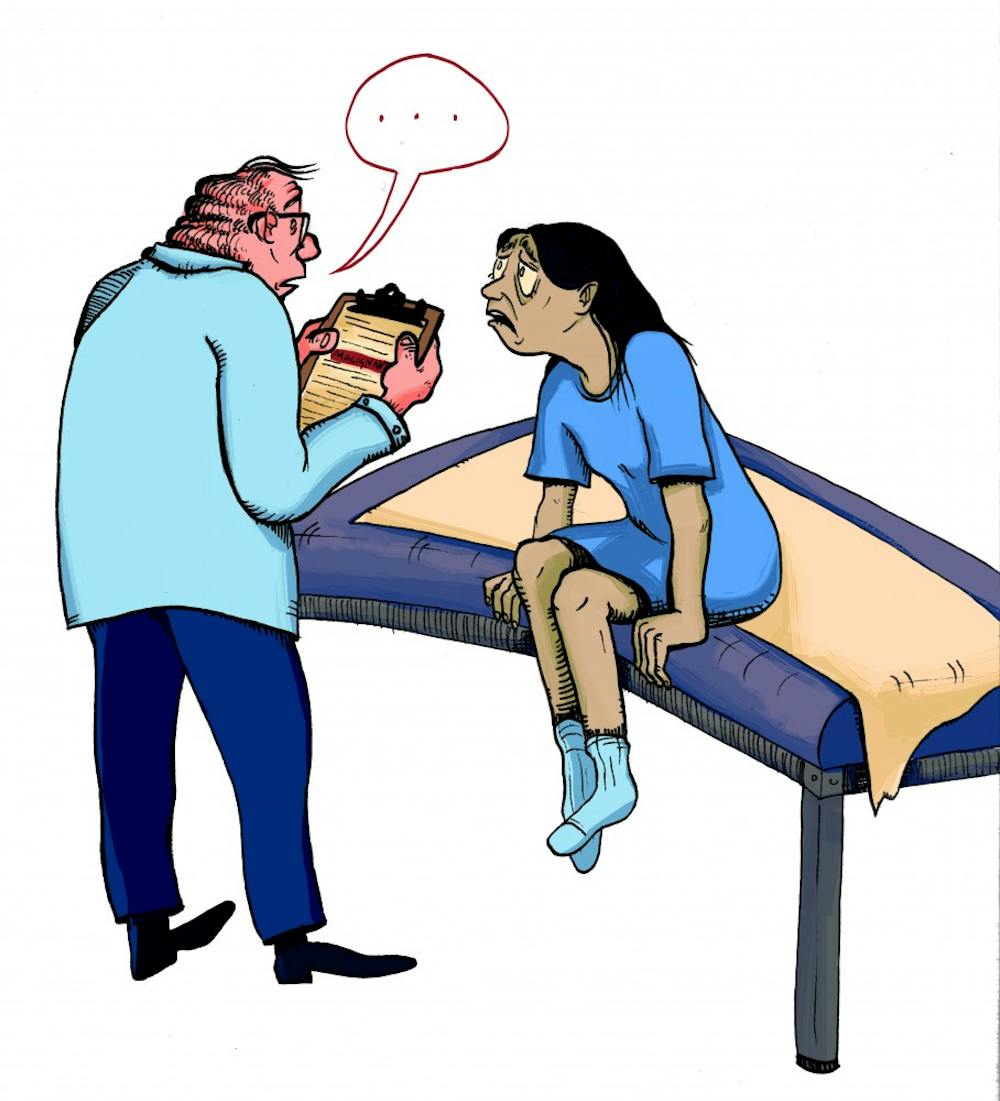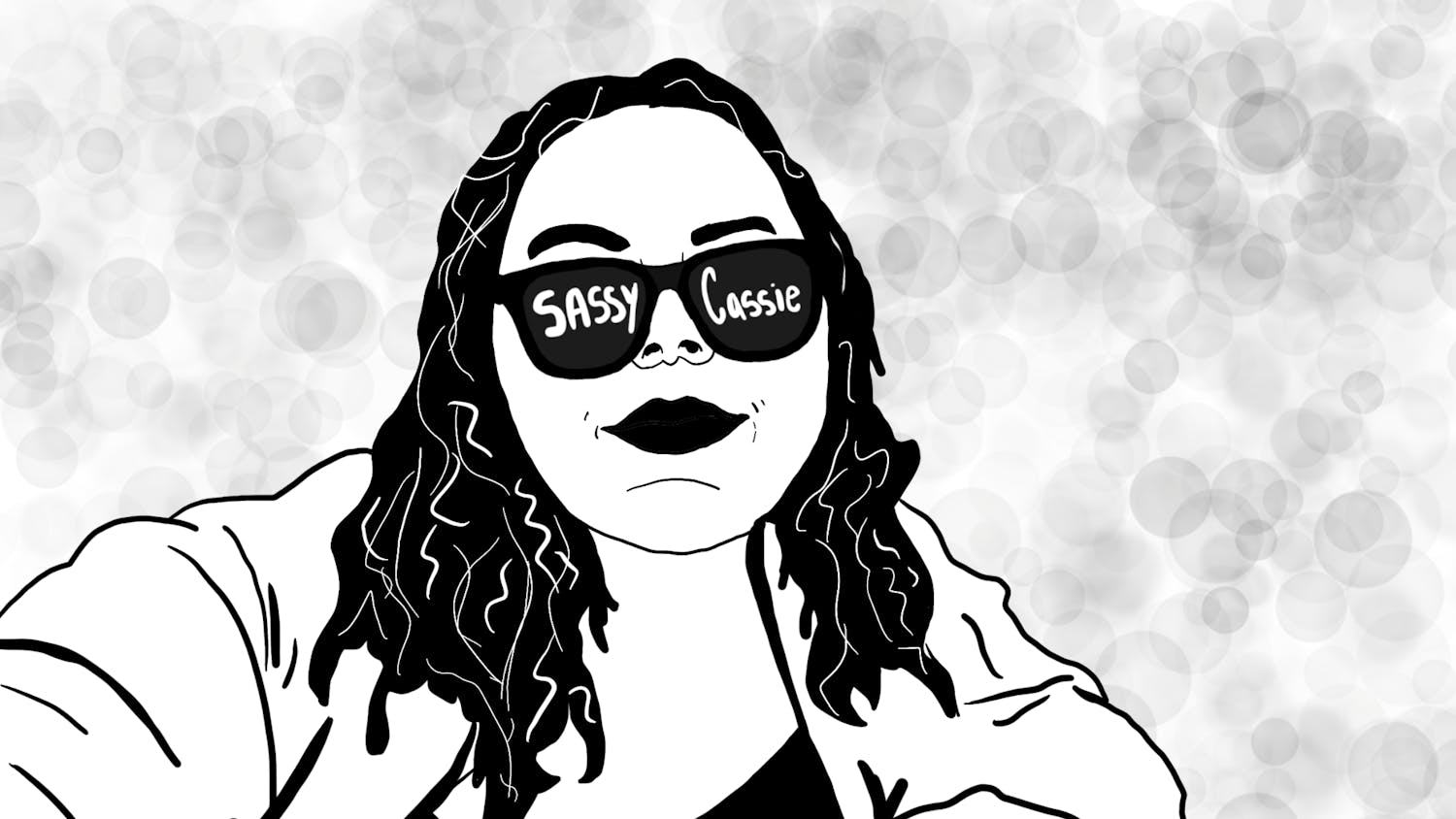When Amy Kish was told she had breast cancer, she had a difficult time processing the daunting news.
“When they tell you everything, you’re listening, but you’re not,” Kish, an administrative assistant at Trimble Middle School, said. “Your first thought is: ‘Am I going to die?’ ”
Kish was diagnosed in November 2008. She had a 3 centimeter (just over an inch) lump on her breast and had a bilateral mastectomy the day after Christmas in 2008. Although the lump was only on one of her breasts, she had both her breasts removed in case the cancer spread to her lymph nodes. Regardless of all the support after the news was delivered, she will never forget the initial moments after her doctor told her she had cancer.
“I had an excellent doctor … he didn’t make me feel like I was just a number. He held my hand and sat with me and told me, ‘We’re going to do everything we can,’ ” she said.
In addition to the daily tasks of recognizing symptoms and prescribing medication, physicians also need excellent communication skills in order to disclose results to patients.
Ohio University’s Heritage College of Osteopathic Medicine is dedicated to equipping students with the skills they need in order to be successful physicians — which includes breaking bad news to patients.
In the lab
Doctor-patient communication is defined by the U.S. National Library of Medicine as “a central clinical function in building a therapeutic doctor-patient relationship, which is the heart and art of medicine.” That type of communication encompasses everything from casual exchanges to explaining to a patient they may only have months to live.
“Doctor-patient communication is so important because … we all use different language, and medical jargon can be very complicated,” Dr. Charee Thompson, an assistant professor at OU who specializes in interpersonal and family communication and health communication, said. “So when they need to communicate that to other people who don’t have that experience, it’s really important that they’re able to break it down.”
HCOM requires all of its students to go through a series of six labs, accompanied by specific lectures, throughout the course of their first two years of medical school. The courses are designed to enhance students’ doctor-patient communication through a hands-on and patient-centered process. The series of labs is led by Dr. Judith Rhue, a professor and head of psychosocial medicine in HCOM.
The students go through six labs during their first two years in HCOM, with the ‘bad news’ lab being the final step.
“I teach the importance of empathy, of active listening, of open-ended questions, of support and of good non-verbal (communication) because we read a lot from looking at each other,” Rhue, who has a Ph.D. in clinical psychology, said. “More is passed visually than verbally. So we work on all of those things.”
For the bad news lab, HCOM uses community members acting as patients and has students deliver the news of cancer. Each patient is set in a separate office room, and the students are given folders with the patient’s tests results just before they are sent off to the room. The student has a short period of time to review the folder of information before entering the room for a 15-minute session where they are recorded informing their patient of the news.
The lab is unscripted. The patients are told they will be receiving some bad news from the medical student assigned to their room and are asked to react as if they were receiving the information in a real visit.
“I remember, you open the patient’s folder, and you kind of see all the patient’s labs ... and we weren’t told ahead of time what the patient had, we just knew that it was going to be bad news,” Ashley Bonamer, a fourth-year medical student, said. “You get that first emotional flood of like, ‘I have all this information and they don’t know any of it.’ You have to walk in the room, and you don’t want to look sad, but you’re nervous now, so you have to figure out where you want to go with it in a short amount of time.
Student Selection
Within a medical student’s first two months of schooling at HCOM, they are already interacting with standardized patients at OU, while many other medical schools don’t offer that kind of clinical experience until later in their training, Jill Harman, senior director of admissions and recruitment at HCOM, said.
“We train outstanding physicians that have great communication skills, that are culturally competent and that make a difference in their community,” Dr. John Schriner, associate dean of admissions of student affairs and an assistant professor of social medicine, said. “It’s fun to be a big player in that process.”
During the application and interview process of being accepted into HCOM, a student's communication skills — both verbal and nonverbal communication — are taken into account, Schriner said.
“The curriculum really requires that you be a good communicator because it’s a engaged and very dynamic learning environment here,” Schriner, an alumnus of OU, said.
Importance of Communication
Kish was one of 12.7 million people who are diagnosed with cancer every year, according to The Huffington Post. The American Cancer Society estimated that in 2016, 1,685,210 new cases of cancer were discovered in the U.S.
Kish has been in remission for the last eight years after her surgeries followed by chemotherapy.
The mother of three said she was fortunate to have the doctors and healthcare professionals by her side through the process along with a large group of friends and family making up her support system. Her friends and family rallied around her and even started an organization called Chix 4 a Cure and honored Kish as their first walk fundraiser nominee.
Despite the extensive efforts of HCOM, there is always more that can be done to better a student’s communication for their future patients, Thompson said. She suggests using feedback from people like Kish who have lived through the experience from a patient’s perspective. Thompson also encourages increasing the number of labs in which students are required to participate.
Rhue emphasizes to her students the effects such news will have on a patient because not only do they have to deal with the initial shock of the news, but the patient has to break the same news to their families. Kish agreed and said the most difficult part of hearing the news was telling her children.
“(My kids) were very confused. I have a daughter, and she was 11 at the time, and so you’re thinking, ‘If I have the gene, am I going to pass it down to her?’ ” Kish said. “And trying to explain to them that I’m going to be OK.”
Upon coming out of her initial surgery, Kish was told the cancer had not spread to her lymph nodes. She decided to go through chemotherapy anyway to reduce the likelihood of the cancer coming back.
“If I could give any advice to anybody who has to tell somebody this; put yourself in their shoes, or in a family member’s shoes and know that this is one of the scariest times of their life,” Kish said. “They’re scared to death, and they need to hear reassurance.”






